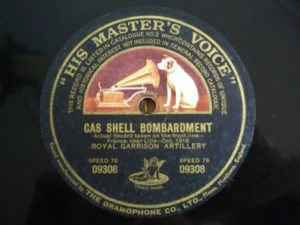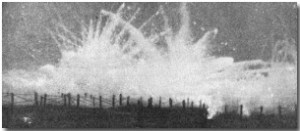Various forms of the records-that-changed-my-life meme have been making the rounds lately, so I came up with my own version, which I call “The Twenty-Five Record Albums That Changed My Life.” I’m writing about one of these albums each weekday in the rough order in which I first heard them.

Most of the twenty-five albums on this list have something important in common: with few exceptions, they’re very white. So, for the most part, were my childhood and youth.
Smalltown, U.S.A., is some twenty-odd miles from the banks of the Mississippi River. In certain ways it’s always been more southern than Midwestern: I’m just old enough to remember separate entrances and drinking fountains, and it wasn’t until I entered sixth grade in 1967 that black children started turning up in my classrooms. Blacks and whites never made friends with one another at school and rarely mingled elsewhere, and my neighborhood was lily-white long after I left Smalltown to make my way in the larger world. This sharp division of the races is easy enough to understand, for it happens that a black man was lynched in Smalltown in 1942, and there were still plenty of people around when I was a boy (including my father) who remembered that terrible day well, though I never did run into anyone who was willing to talk about it.All this notwithstanding, I’ve been fascinated by black art and culture for as long as I can remember—without, however, succumbing to the Quentin Tarantino-like temptation to pretend that I’m anything other than what I am, which is…well, very white. I’m content to be a sympathetic onlooker, and delighted when the seriousness of my interest in a culture not my own, and the modesty with which I approach the task of trying to understand it better, are acknowledged by those to whom such things come naturally. When I wrote a one-man show about Louis Armstrong, one of the actors who played the role said to me midway through a rehearsal, “I can’t believe a Caucasian wrote this.” You should have seen the smile on my face.
How could such a thing have happened? Music bridged the gap, flinging wide the door that my cloven community nailed shut for as long as it could. I loved jazz as soon as I heard it, and I was similarly excited by much of the black pop music that started to be played on our local radio station around the time I first started listening to rock and roll. Not all, though: I didn’t care for Motown, which I found too slick by half. I might have felt differently if I’d heard Marvin Gaye or Stevie Wonder, but the only Motown artists I remember hearing on the radio in Smalltown were the Supremes and the Jackson 5, who didn’t suit me at all.
So I became a Stax man, thanks mainly to Booker T. and the MG’s. In addition to serving as the house rhythm section for Memphis’ Stax Records, they cut dozens of instrumental singles on their own, some of which became modest crossover hits. One of them, “Hip Hug-Her,” came out in 1967, and it knocked me across the room when I first heard it a couple of years later. Everything about that no-nonsense record is perfect: Steve Cropper’s everybody-listen-up guitar introduction and terse background riffs, Booker T. Jones’ purring solo organ lines, Al Jackson Jr.’s hard-as-nails backbeats, “Duck” Dunn’s dirt-simple bass playing.
If you’d asked me, I suppose I would have said that “Hip Hug-Her” was “black music,” but I didn’t think of it that way. To me it was music, period. It wouldn’t have surprised me at all to learn that Cropper and Dunn were white, something I didn’t find out until much later. Rightly or wrongly, I took it for granted that their music, like jazz, belonged as much to me as it did to anyone. John Fogerty, lately of Creedence Clearwater Revival, felt the same way, and I can’t better what he wrote about Booker T. and the MG’s in Fortunate Son, his 2012 autobiography: “For years and years I have said that Booker T. & the M.G.s were the greatest rock ’n’ roll band of all time. I’m talking about soulfulness, deep feeling, the space in between the beats. How to say a lot with a little.” I would have killed to play bass in a group like that.
Not until later in life did I get to know other, older kinds of black pop music. Several more years went by before I heard and fell for Louis Jordan, Ray Charles, and B.B. King, and it wasn’t until I saw Terry Zwigoff’s Ghost World eighteen years ago that I became passionately interested in country blues. I had no idea when I first heard Crosby, Stills & Nash, for instance, that the unaccompanied vocal introduction to “49 Bye-Byes” that David Crosby sings is a very close imitation of the first line of Robert Johnson’s Come On in My Kitchen. But I’ve loved soul music ever since I was a teenager, and it was Booker T. and the MG’s who first brought me the good news.(To be continued)
* * *
Booker T. and the MG’s play “Hip Hug-Her”:
Booker T. and the MG’s play “Green Onions” on stage in Norway during the 1967 Stax-Volt European tour:
Thora Birch listens to Skip James’ “Devil Got My Woman” in Terry Zwigoff’s Ghost World:
* * *
To read about album #1, go here.
To read about album #2, go here.
To read about album #3, go here.
To read about album #4, go here.
To read about album #5, go here.
To read about album #6, go here.
To read about album #7, go here.
To read about album #8, go here.
To read about album #9, go here.
To read about album #10, go here.
To read about album #11, go here.
To read about album #12, go here.
To read about album #13, go here.
To read about album #14, go here.
To read about album #15, go here.
To read about album #16, go here.
To read about album #17, go here.
To read about album #18, go here.
To read about album #19, go here.

 I posted this for the first time on November 11, 2008. It’s still relevant, and (I suspect) always will be.
I posted this for the first time on November 11, 2008. It’s still relevant, and (I suspect) always will be. Here is Gaisberg’s own account of the making of the recording:
Here is Gaisberg’s own account of the making of the recording:
